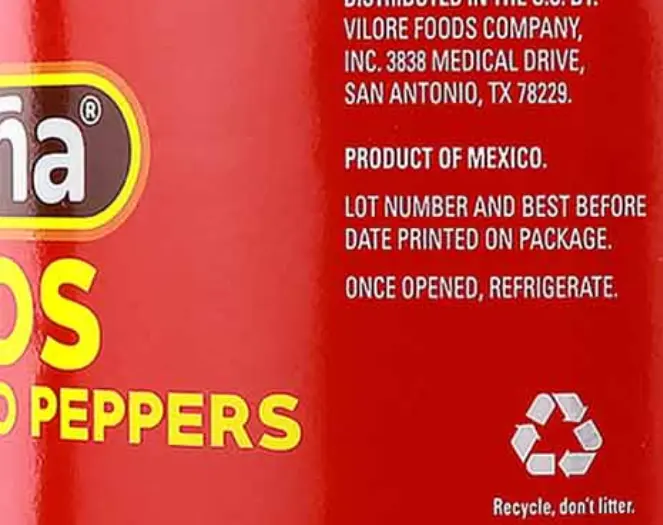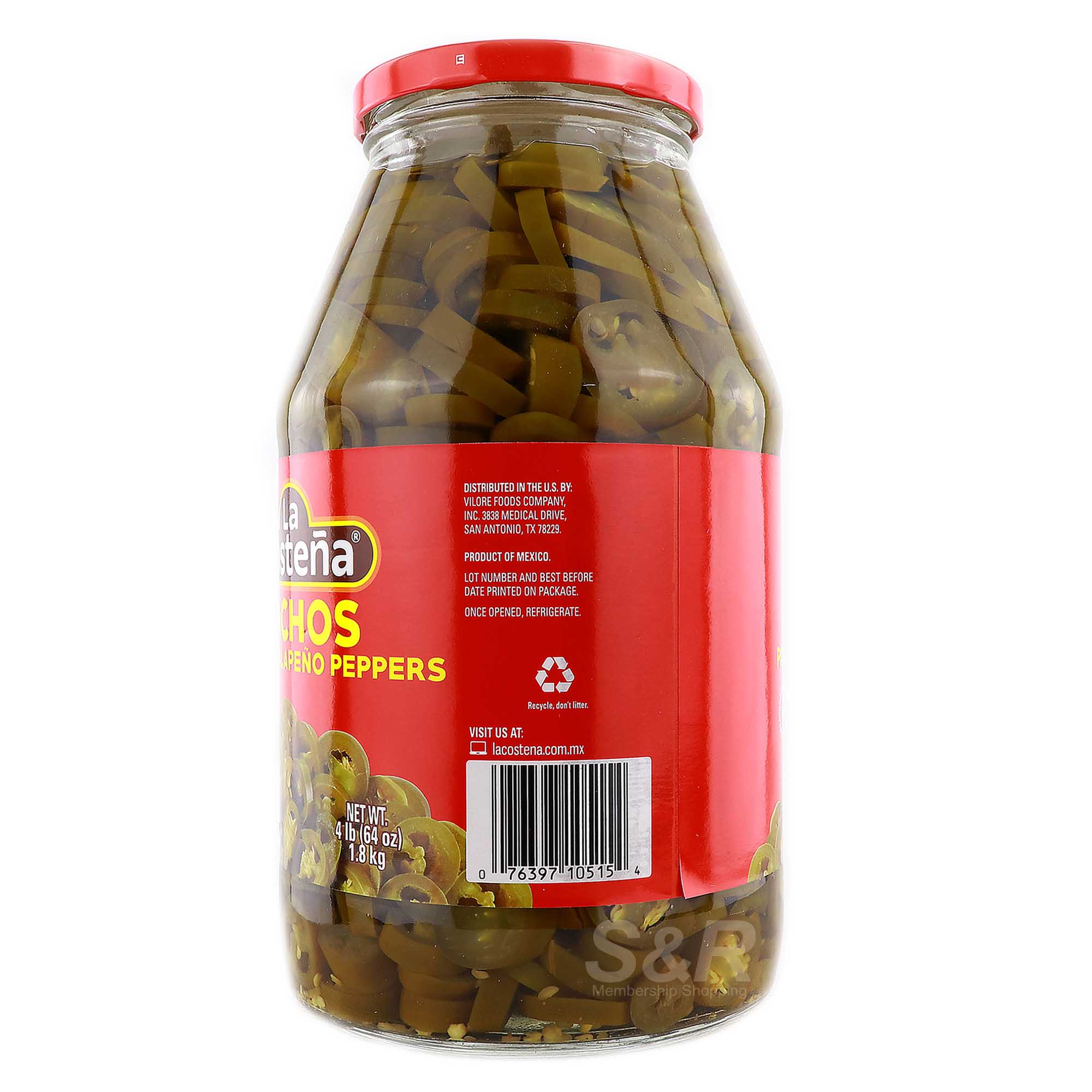https://www.snrshopping.com/upload/product_details/5f4847711e5f7_1598572401.jpg
It says to refrigerate right there on the next line of text covered by the cardboard on the lower left jar in your photo.
Pretty sure they will say refriegerate affer opening somewhere on the bottle. They slap that on pickled or high acidity condiments that probably don’t need refridgeration for safety reasons.
I have no idea if it is necessary, if it extends the shelf life, or has no purpose other than making it more likely for people to throw it out if they don’t put it in the fridge.
I put it in the fridge if it says to assuming it might keep it fresh longer. But if I leave something pickled out overnight I will just put it back in the fridge.
If you don’t refrigerate them, after a while they’ll give you more diarrhea than usual.
Dang thanks for the reminder, kind person. I have some foods to dispose of…
Nom nom nom nom
💩 🌊 🚀
Stop, refrigerate, and listen.
On the freaking jar

nothing was on the bottle, that’s why I was skeptical. it’s too big for our fridge so I wanted to make sure
It’s visible in this image

ONCE OPENED REFRIGERATE
Ohhhh, now I get it! I thought that meant it would make my cupboard colder.
If it’s not on the bottle, and you get sick, you can sue them and make them suck your dick!
Yeah! American capitolism, baby!!!
Username checks out.
Your question is answered, but I just wanted to say; good on you for being food preservation conscious. When I first started dating my now wife she thought that you needed to store syrup in the refrigerator, and things like mayonnaise and unwaxed cheese could sit in the open. I had to go through her whole pantry 🤢
My partner’s family from Philippines grew up in a home without appliances like refrigerators, like many, many people in developing countries.
So while now they have every modern convenience, old habits die hard and stomachs seem to adapt to even the most adverse conditions of foodstuffs.
Not mine. I love their cooking but can only eat food that I’ve seen opened or cooked in front of me. They will legitimately leave meat dishes out on the table for two days or more and then simply “reheat” and consider it good to serve. The cabinets are full of things like mayo, cheese dips, opened gravies and open bottles of fruit juice.
I have had some of the very worst food poisoning in my life from inadvertently eating something there like chicken salad that I thought was fresh, but made with hard-boiled eggs that had been sitting on a counter in summer heat for several days that a “friend” brought over so they “wouldn’t waste.”
Of course I’m the only one that gets sick, so I’m the “special one” that everyone now thinks has some terminal illness and treats me like a hospice patient.
Yikes, I am not sure I have found a bottle like this that doesn’t say, “Refrigerate after opening” on the side of it was required. I assumed it was a FDA rule, never looked into it.
Some syrups do require that, yes. The 100% natural syrups absolutely do require refrigeration, but the ones with preservatives do not need to be refrigerated. And just to be clear, I make a dish that requires syrup an estimated 2 weeks
deleted by creator
I don’t find this article compelling. Obviously it’s not going to last as long unrefrigerated. That seems to be their criteria.
No. The criteria is to avoid food borne illnesses. Mayonnaise is made with eggs which is poultry. What happens to poultry if it sits out raw for too long you ask? Well, it starts develop this bacteria know as salmonella which can and will cause death or very serious illness. If you want to consume mayonnaise hot, then that’s on you and best of luck, but I’m not going to let people I ACTUALLY care about do it
That makes a lot of sense and I see the error of my reasoning. You’ve convinced me.
I would. While pickling is a good way to preserve food, the food itself needs to stay submerged in the pickling solution if not refrigerated. Acids used in pickling solutions are extremely hostile environments for bacteria.
Big caveat: Pickling and fermentation processes can be very different. One process may work to keep food safe for years, but others may only last weeks or days once the food is exposed to air.
Refrigeration slows down bacterial growth enough for days or weeks of storage, but eventually, robust bacteria will take over if there is just a little bit of air circulation. Warmer conditions with occasional air circulation and some kind of food source just increases the risk of bacteria development exponentially.
Before refrigeration was a thing, picking or salt packing was king. It works well, but it’s easy to screw up. Heck, I think authentic/traditional kimchi production never uses refrigeration and relies on the acids as well as CO2 and basic ethanol production to stay
sterilesafe.These days, just throw everything in the fridge. It’s easier and safer because you don’t know exactly what preserving processes were used.
The packaging also offers some hints. It has a glass jar and a metal lid, which might click when you open it. My guess is, that bottle went through an oven before being shipped. Glass is heavy and expensive, which isn’t what the manufacturer wants. They wouldn’t use a package like this unless they really have to, which implies heat treatment.
If sterilized properly, that process killed all the microbes in it, which means you can safely ship it and store it in ambient temperatures for a very long time. Chemical reactions still take place, which might affect the taste if you store it for decades or centuries. However, if it’s properly sterilized, microbes aren’t involved in any of it. Once the lid is opened for the first time, airborne microbes immediately contaminate the contents and the clock starts ticking.
Salt and vinegar make the environment hostile for most microbes, but not all. This method will clearly help with limiting the growth rate, but keeping the jar in the fridge would be my advice as well. This way, you get the benefits of multiple methods of slowing down the growth rate.
Pickling is one way to preserve food, but refrigeration is better.
Pickling and canning is better than refrigeration - until opened
I like cold pickles (especially kraut) on my hot food. It adds a little “spice” to what’s going on in my mouth.
Yes. You can keep them out, but they will last less and may grow mold depending on the storage and handling conditions.
Store in stomach when opened.
Almost certainly yes.
Yes. They are sterilized when packaged and are ready to be colonized once open. If they were live fermented and still live, you’d be ok as long as they remain below the brine.
It usually says this on the label, at least in my country it has a phrase like “Store refrigerated after opening and consume within a few days”.
If it has no instructions or you are unsure, I’d default to yes, put them in the fridge after opening.
deleted by creator
Id say they’ll be pretty safe out of the fridge, but if you keep them in the fridge they might stay firmer longer. Like more bite. They might go mushy in the cupboard.
once opened, yeah, if you want to be safe.
I just treat them like regular pickles and refrigerate after opening.
Typically the label should answer your question. However from experience, I will say yes.
Ideally, if you can and know when you will use it, refrigerate them already before you open any jar, this reduces the time window when bacteria or molds can grow.













